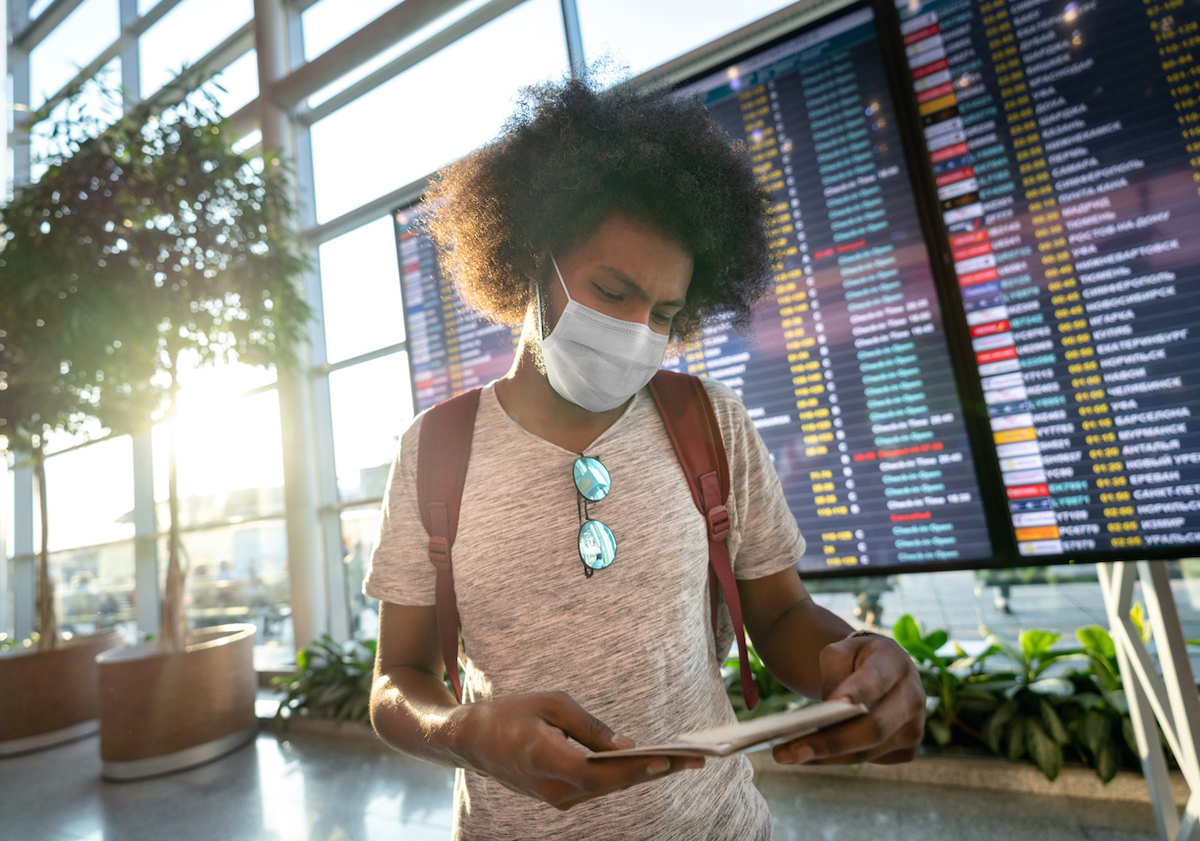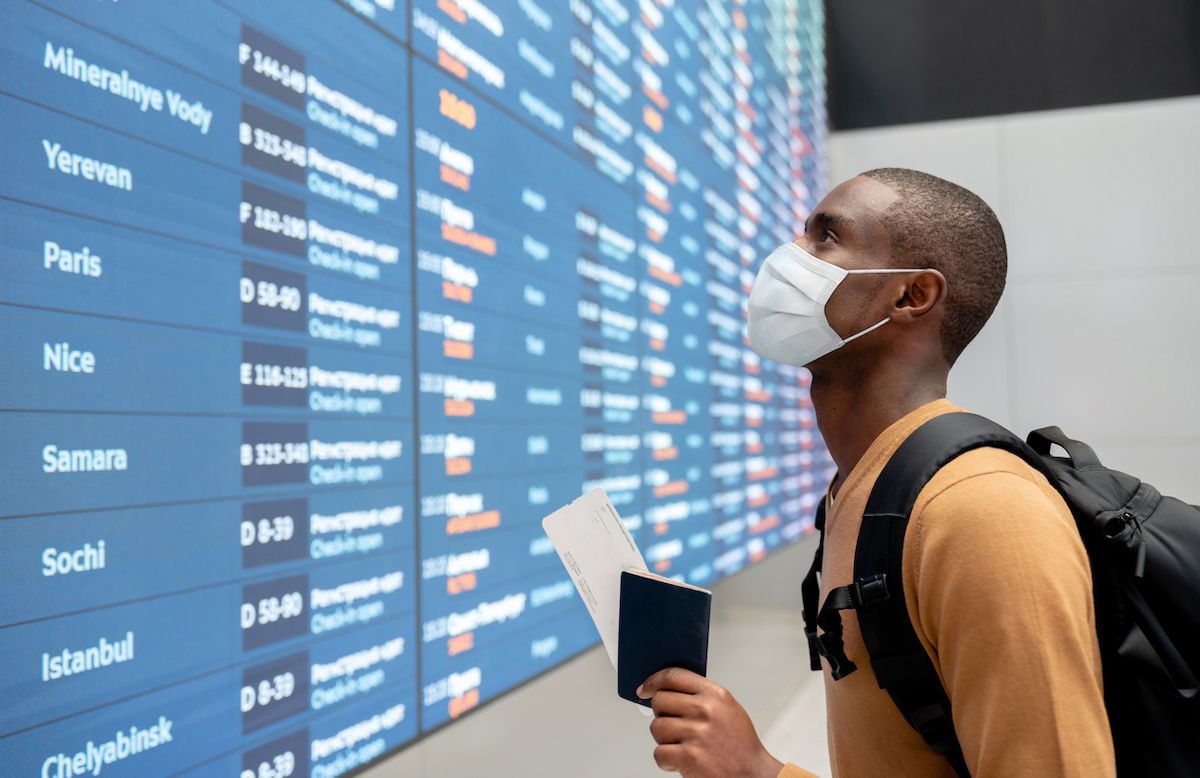RELATED: The IRS Says These People Must Return Their Stimulus Checks.ae0fcc31ae342fd3a1346ebb1f342fcb Even as life continues to revert to normal on the domestic front, it may be a while before borders see the same reopening. According to a White House official, the Biden administration has no plans to lift the international travel restrictions currently in place, despite previously announcing an international expert working group tasked with safely resuming travel. “While these groups have met a number of times, there are further discussions to be had before we can announce any next steps on travel reopening with any country,” the White House official told Reuters. “We have made tremendous progress domestically in our vaccination efforts, as have many of these other countries, but we want to ensure that we move deliberately and are in a position to sustainably reopen international travel when it is safe to do so.” The announcement comes amid mounting pressure from lawmakers and business groups in the U.S. who argue the restrictions are putting a strain on major sectors of the economy, including tourism, air travel, hospitality, and trade. Many are calling for the reopening of borders for non-essential travelers, at least between the United States and Canada and the European Union. During a press conference on July 6, White House Press Secretary Jen Psaki acknowledged the hardships created by the current bans, saying the administration was working towards a safe reopening. “We know that, in many cases, families are separated. We know that’s a heartbreaking challenge that a lot of people are dealing with. And a lot of people are eager to travel, be with loved ones, or even do work travel. We understand that. We’re eager to do that as well,” she told reporters. RELATED: Dr. Fauci Just Made This Major Admission About the CDC Mask Guidance. Under the current travel restrictions that have been in place since January, most foreign nationals who have been in the U.K., Ireland, Brazil, South Africa, Iran, China, and 26 countries within the European Union within the past 14 days are currently barred from entering the U.S. India was also added to the list of countries in early May. The travel ban does not apply to American citizens or lawful permanent residents of the U.S. and their spouses, young children, or siblings, or the parents of any citizen or permanent resident under the age of 21. However, even those exempt from the travel ban are still subject to the current CDC guidelines for international arrivals to the United States, which require a negative COVID-19 test within three days before traveling. In addition, those who are not vaccinated must also self-quarantine for a full week after their arrival. Travel bans are the only COVID restrictions that have been kept in place by federal authorities. Last month, officials extended restrictions barring non-essential travel at Mexican and Canadian land borders until July 21. And in April, the Transportation Security Administration (TSA) extended its mask mandate, requiring all travelers in transit on airplanes, trains, buses, and ferries or passing through transit hubs such as airports to wear a face covering through at least Sept. 13. RELATED: If You Take Medication for This, You May Still Need a Mask, CDC Says.



